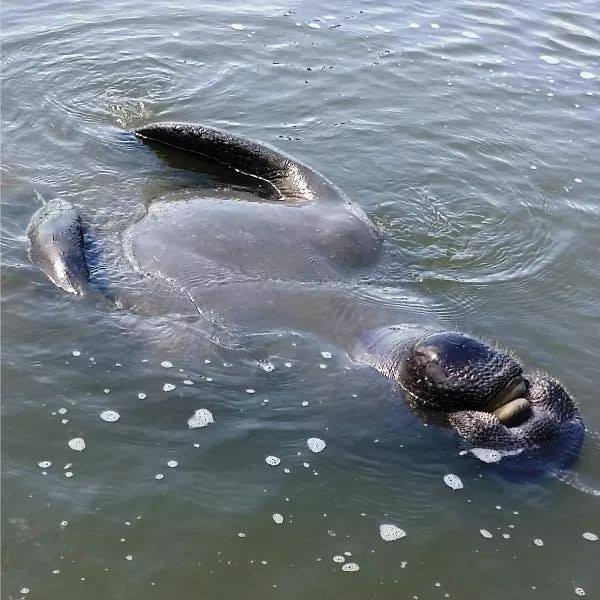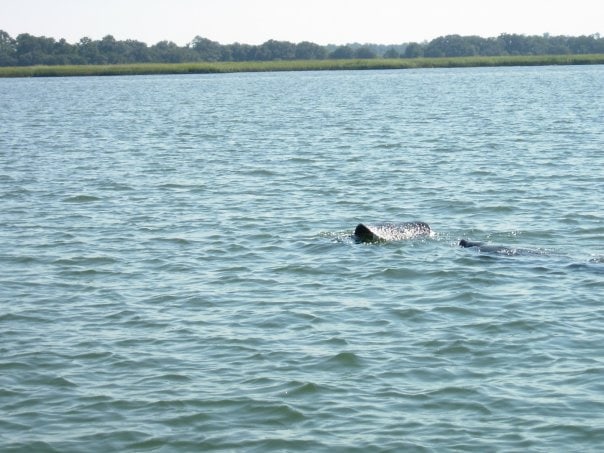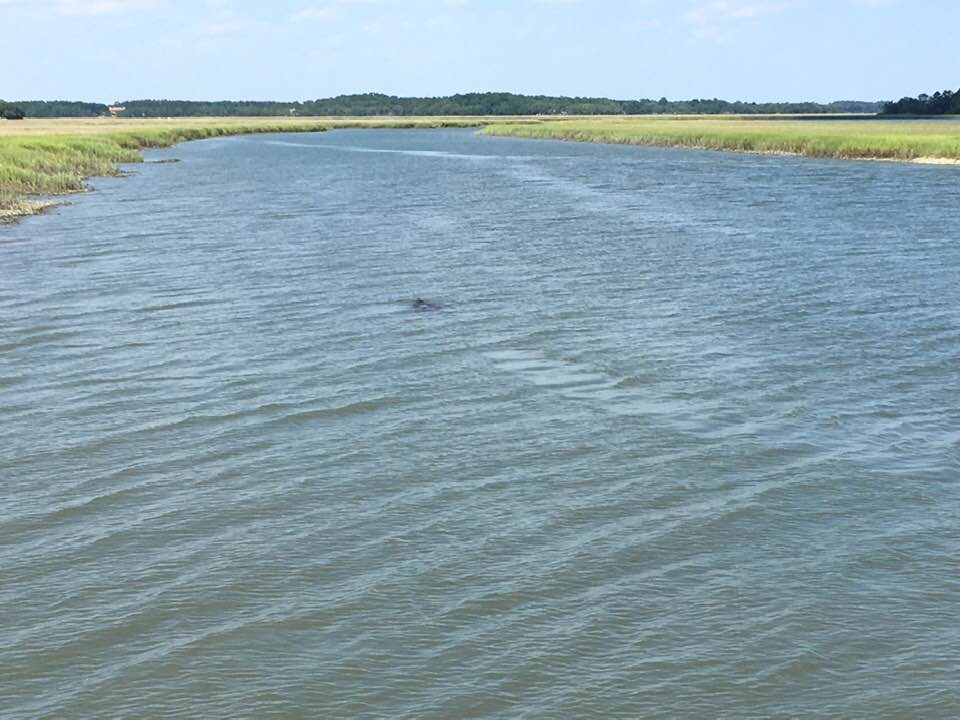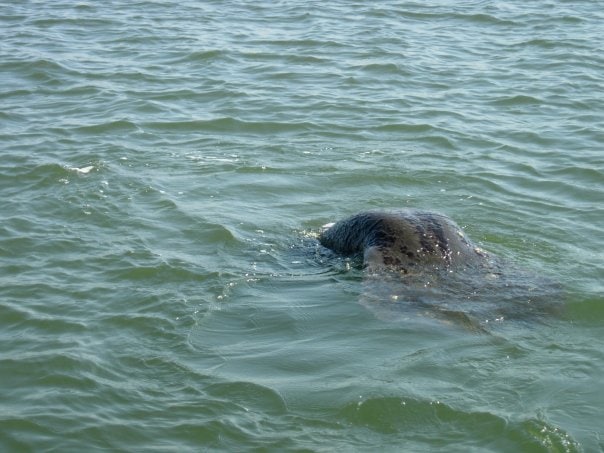Gentle Giants Have Returned to Coastal Waters...Please Be Particularly Alert While Boating!
If you’re on the water, be particularly alert while boating and watch out for manatees. Boat propellers are among the sea mammal’s most dangerous predators.
As manatees return to their haunts along the coast, South Carolina Department of Natural Resources (SCDNR) and U.S. Fish and Wildlife Service (USFWS) biologists are reminding residents and visitors to be particularly alert while boating and to report sightings of these gentle giants online.
Have you spotted a Manatee in the Lowcountry?
There are a number of ways members of the public can help South Carolina’s manatees. Photographs of scars on manatees’ backs and tails are particularly useful, because they can often be used to identify previously known individuals. However, manatees should never be approached by boat to obtain pictures.
To report a live manatee sighting in South Carolina, please report it here: http://bit.ly/manateesc
To report a dead or injured manatee in South Carolina please contact the U.S. Fish and Wildlife Service, Melanie Olds at 1-843-727-4707 ext.205. Manatees are catalogued according to the presence and location of scar patterns are their body. With your help, SCDNR can use this information to identify individual manatees. Please email photographs of animals sighted to manatee@dnr.sc.gov.

Manatees, or sea cows, are large marine mammals that reach around 10 feet in length and weigh up to a ton. They’re warm-weather visitors to South Carolina, typically arriving in May and leaving by November, when water temperatures drop below 68 degrees Fahrenheit. Because of the difficulty of counting them in murky waters, South Carolina’s manatee population is currently unknown – but it’s a small fraction of the United States’ estimated 6,600 animals, most of which remain in Florida. Due to federal and state protections, it’s illegal to hunt, play with or harass manatees, which includes touching, providing water to or attempting to feed them.

Collisions between boaters and manatees are more likely to occur in shallow waters, particularly around docks and at the edge of marshes where manatees feed. Staying alert, following safe boating practices and maintaining lower speeds in these areas can reduce the risk of a collision.

Boaters should also watch for manatee backs, tails, snouts and “footprints” – a series of round swirls on the surface caused by a swimming manatee’s tail.


“Feeding and watering manatees encourages the animals to spend time at docks and marinas, making them more susceptible to boat strikes,” said USFWS biologist Melanie Olds. “In addition to being one of the main causes of mortality for manatees, it is also illegal.” The manatee is protected under federal law by the Marine Mammal Protection Act of 1972 and by the Endangered Species Act of 1973, which makes it illegal to harass, hunt, capture or kill any marine mammal. Conviction at the federal level is punishable by fine of up to $50,000 and/or one year in prison.
For 44 years, the Florida manatee was protected as “endangered” under the federal Endangered Species Act. In March of 2017, as a result of increasing numbers and improving habitat, USFWS reclassified their status as “threatened.” Manatees are still protected under federal and South Carolina law and face a number of threats on their continued path to recovery. The greatest dangers to the species include boat strikes, entanglement in fishing gear and harmful algal blooms known as red tides.
Tips for being manatee friendly in South Carolina:
- Use caution when cranking your motor and navigating in shallow water, especially along the edge of a marsh. Manatees cannot dive away from boats in these areas.
- Always heed “slow speed,” “no wake” and manatee warning signs, particularly around docks.
- Wear polarized sunglasses to reduce glare, making it easier to spot manatees below the surface.
- Watch for large swirls in the water or “footprints” that may be caused by manatees diving away from the boat.
- Dock owners should never feed manatees or give them fresh water. This could teach the animals to approach docks, putting them at greater risk of a boat strike, and it is illegal.
- Never pursue, harass or play with manatees. It is bad for the manatees and is illegal.
Have you ever seen a manatee in Beaufort’s waters?
Send us your photos or videos – we’d love to see them!




